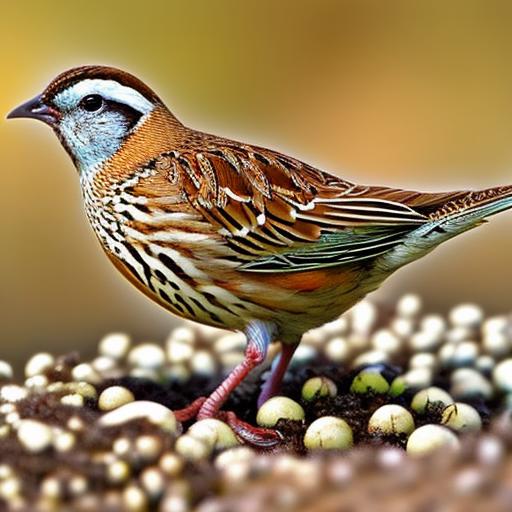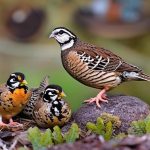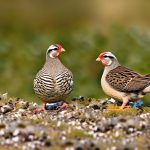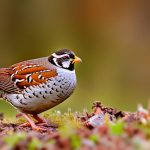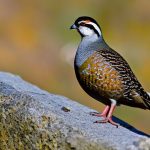739 Quail Keep is a rewarding and sustainable practice that involves the care and breeding of quail for various purposes such as meat, eggs, and even as pets. Quail keeping has been gaining popularity in recent years due to the low maintenance and space requirements of these birds, making it an ideal option for small-scale farmers and hobbyists. The 739 Quail Keep is a comprehensive guide to understanding the needs of quail and providing them with the best care possible. From feeding and housing to breeding and health maintenance, this article will cover all aspects of quail keeping to help you become a successful quail keeper.
Quail are small, ground-dwelling birds that belong to the pheasant family. They are known for their delicious meat and nutritious eggs, making them a valuable addition to any homestead or farm. In addition to their practical uses, quail are also fascinating birds to observe and interact with, making them a popular choice for avian enthusiasts. Whether you are interested in raising quail for profit or simply enjoy the company of these charming birds, the 739 Quail Keep will provide you with the knowledge and skills needed to care for your quail effectively.
Key Takeaways
- 739 Quail are small, social birds that are relatively easy to care for and can provide a sustainable source of income.
- Proper care and feeding of 739 Quail includes a balanced diet of commercial quail feed, fresh water, and occasional treats like fruits and vegetables.
- Housing and shelter for 739 Quail should provide protection from predators, adequate space for movement, and proper ventilation to ensure their health and well-being.
- Breeding and reproduction of 739 Quail can be a rewarding aspect of quail keeping, but it requires careful management of nesting areas and monitoring of egg production.
- Maintaining the health and wellness of 739 Quail involves regular health checks, parasite control, and providing a clean and safe environment for the birds to thrive.
- 739 Quail keeping can be a sustainable livelihood, providing a source of income through the sale of quail eggs, meat, and chicks.
- Keeping 739 Quail comes with its joys and challenges, from the satisfaction of watching the birds thrive to the responsibility of ensuring their well-being and productivity.
The Care and Feeding of 739 Quail
Proper care and feeding are essential for the health and well-being of 739 quail. These birds have specific dietary requirements that must be met to ensure optimal growth, egg production, and overall health. A balanced diet for quail typically consists of a high-quality commercial feed supplemented with fresh greens, grains, and protein sources. It is important to provide quail with access to clean water at all times, as they have high water requirements, especially during hot weather or when laying eggs.
In addition to their basic dietary needs, quail also require access to grit or small stones to aid in digestion, as well as calcium supplements for laying hens to support strong eggshells. It is important to monitor the condition of your quail regularly to ensure they are maintaining a healthy weight and are free from any signs of malnutrition or illness. By providing a well-balanced diet and monitoring their overall health, you can ensure that your quail remain healthy and productive.
Quail also require proper feeding management to prevent issues such as overeating or food waste. Providing feed in feeders that minimize spillage and waste can help reduce feed costs and keep the quail’s living environment clean. Additionally, feeding schedules should be consistent to help maintain the quail’s digestive health and overall well-being. By paying close attention to their dietary needs and feeding habits, you can ensure that your quail remain healthy and thriving.
Housing and Shelter for 739 Quail
The housing and shelter provided for 739 quail play a crucial role in their overall well-being and productivity. Quail require a safe and secure environment that protects them from predators, extreme weather conditions, and other potential hazards. When designing a housing structure for quail, it is important to consider factors such as ventilation, insulation, and space requirements to ensure the comfort and health of the birds.
Quail housing should provide adequate space for the birds to move around freely, as overcrowding can lead to stress, aggression, and reduced egg production. The housing structure should also be designed to allow for easy cleaning and maintenance to promote good hygiene and prevent the spread of diseases. Additionally, nesting boxes or areas should be provided for laying hens to encourage natural egg-laying behavior and protect the eggs from damage.
In addition to the physical structure of the housing, it is important to consider the bedding material used in the quail’s living area. Clean, dry bedding such as straw or wood shavings should be provided to create a comfortable and sanitary environment for the birds. Regular cleaning and replacement of bedding will help prevent the buildup of waste and reduce the risk of bacterial or fungal infections.
Breeding and Reproduction of 739 Quail
Breeding and reproduction are essential aspects of 739 quail keeping for those interested in maintaining a sustainable flock or producing quail for meat or egg production. Quail are prolific breeders and can begin laying eggs as early as six weeks of age, making them an ideal choice for those looking to establish a productive flock quickly. To encourage successful breeding and reproduction, it is important to provide quail with a suitable breeding environment and proper care.
When breeding quail, it is important to maintain a balanced ratio of males to females to prevent aggression and ensure successful mating. Additionally, providing nesting areas with suitable materials such as straw or hay can encourage hens to lay eggs in a safe and comfortable environment. It is important to collect eggs regularly to prevent them from being damaged or eaten by the birds, as well as to ensure that they remain clean and viable for hatching or consumption.
For those interested in hatching quail eggs, an incubator can be used to provide optimal conditions for egg development and hatching. Proper temperature, humidity, and turning of the eggs are essential for successful incubation. Once hatched, the chicks should be provided with a warm, safe environment and access to a high-quality starter feed to support their growth and development.
Health and Wellness of 739 Quail
Maintaining the health and wellness of 739 quail is essential for ensuring their long-term productivity and well-being. Regular health checks should be conducted to monitor the condition of the birds and identify any signs of illness or injury. Common health issues in quail include respiratory infections, parasites, and nutritional deficiencies, which can be managed through proper care, hygiene, and veterinary intervention when necessary.
Preventative measures such as vaccination, parasite control, and biosecurity protocols can help reduce the risk of disease outbreaks within the quail flock. Additionally, providing a clean living environment with good ventilation and access to fresh water can help promote overall health and reduce stress on the birds. It is important to quarantine new birds before introducing them to an existing flock to prevent the spread of diseases.
In addition to physical health, the mental well-being of quail should also be considered. Enrichment activities such as providing perches, dust bathing areas, and access to outdoor space can help stimulate natural behaviors and reduce stress in captive quail. By prioritizing the health and wellness of your quail, you can ensure that they remain productive and content members of your flock.
739 Quail Keep as a Sustainable Livelihood
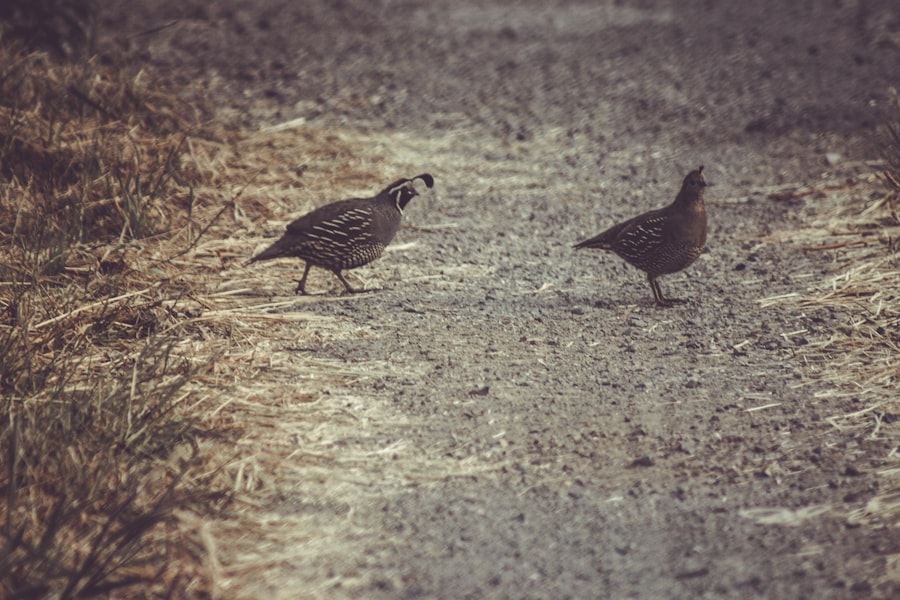
739 Quail Keep has the potential to serve as a sustainable livelihood for individuals interested in small-scale poultry production. Quail are known for their rapid growth rate, high egg production, and efficient use of space, making them an attractive option for those looking to generate income from poultry farming. The relatively low start-up costs associated with quail keeping make it accessible to individuals with limited resources or land, making it an ideal option for small-scale farmers or homesteaders.
In addition to their practical uses for meat and egg production, quail keeping can also provide opportunities for value-added products such as quail meat products or specialty eggs for niche markets. By diversifying product offerings and exploring direct marketing opportunities such as farmers’ markets or online sales, quail keepers can maximize their earning potential while promoting sustainable agricultural practices.
Furthermore, quail keeping can contribute to food security by providing a source of nutritious protein through meat and eggs. As global demand for sustainable protein sources continues to rise, quail keeping offers a viable solution for meeting this need while minimizing environmental impact. By embracing sustainable practices such as organic feed production, pasture-based systems, and waste management strategies, quail keepers can contribute to a more resilient and environmentally friendly food system.
The Joys and Challenges of Keeping 739 Quail
In conclusion, 739 Quail Keep offers a rewarding opportunity for individuals interested in sustainable poultry production. From providing proper care and feeding to creating suitable housing environments and promoting breeding success, there are many aspects to consider when embarking on a journey as a quail keeper. While there are challenges associated with maintaining the health and productivity of quail, the joys of observing these charming birds thrive in your care make it all worthwhile.
The potential for 739 Quail Keep to serve as a sustainable livelihood adds another layer of appeal for those looking to make a meaningful impact through small-scale agriculture. By embracing best practices in quail keeping and exploring innovative marketing opportunities, individuals can create a successful enterprise while contributing to food security and environmental stewardship. Whether you are drawn to quail keeping for its practical benefits or simply enjoy the company of these delightful birds, there is much to gain from this fulfilling endeavor.
Check out this informative article on when guinea fowl lay eggs at Poultry Wizard. It’s a great resource for anyone interested in raising quail and other poultry.
FAQs
What is quail keeping?
Quail keeping refers to the practice of raising quail for various purposes, such as eggs, meat, or as pets. It involves providing proper housing, feeding, and care for the quail to ensure their health and well-being.
What do quails eat?
Quails are omnivorous birds and their diet consists of a variety of foods including seeds, insects, fruits, and vegetables. Commercially available quail feed can also be provided to ensure they receive all the necessary nutrients.
What type of housing do quails need?
Quails require a secure and well-ventilated housing structure that protects them from predators and the elements. This can include a coop or aviary with appropriate bedding, perches, and nesting boxes.
How do you care for quails?
Caring for quails involves providing them with a balanced diet, clean water, and a clean living environment. Regular health checks, protection from predators, and proper handling are also important aspects of quail care.
What are the benefits of quail keeping?
Quail keeping can provide a sustainable source of eggs and meat for personal consumption. Additionally, quails are relatively low maintenance and can be a rewarding hobby for bird enthusiasts.
Meet Walter, the feathered-friend fanatic of Florida! Nestled in the sunshine state, Walter struts through life with his feathered companions, clucking his way to happiness. With a coop that’s fancier than a five-star hotel, he’s the Don Juan of the chicken world. When he’s not teaching his hens to do the cha-cha, you’ll find him in a heated debate with his prized rooster, Sir Clucks-a-Lot. Walter’s poultry passion is no yolk; he’s the sunny-side-up guy you never knew you needed in your flock of friends!

